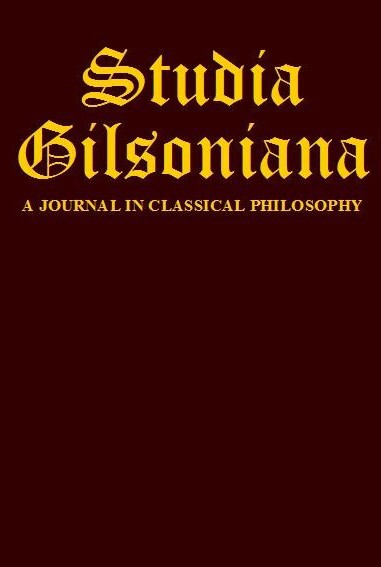Peter Redpath’s Philosophy of History
Peter Redpath’s Philosophy of History
Author(s): Curtis L. HancockSubject(s): Philosophy, History of Philosophy
Published by: International Étienne Gilson Society
Keywords: Peter Redpath; history; philosophy; education; culture; politics; leadership; Western Civilization; Christendom; poetry; sophistry; science; wisdom; theology; liberal arts; Thomas Aquinas; metaphysics
Summary/Abstract: Peter Redpath is a distinguished historian of philosophy. He believes that the best way to acquire a philosophical education is through the study of philosophy’s history. Because he is convinced that ideas have consequences, he holds that the history of philosophy illuminates important events in history. Philosophy is a necessary condition for sound education, which, in turn, is a necessary condition for cultural and political leadership. Hence, the way educators and leaders shape culture reflects the effects of philosophy on culture. In light of this background, it is possible to discern in Redpath’s account of the history of philosophy a corresponding philosophy of history. This emerges as he explains how philosophers have produced changes in thinking that have profound consequences for the culture at large. Some of these changes, many of them significant, have been positive, but others have been disastrous. Much of Redpath’s philosophy of history diagnoses what went wrong in the history of philosophy so as to indicate why modern culture suffers considerable disorder. The good news is that Redpath’s philosophy of history prescribes ways to correct Western Civilization’s current malaise.
Journal: Studia Gilsoniana
- Issue Year: 5/2016
- Issue No: 1
- Page Range: 55-93
- Page Count: 39
- Language: English

